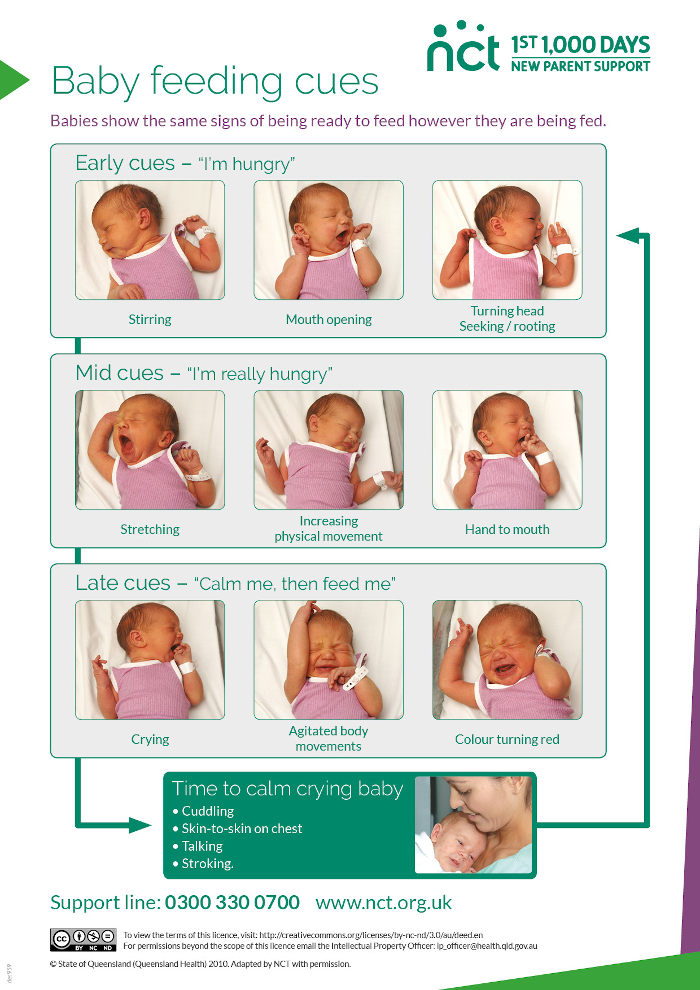
Most infant formula-fed newborns will feed 8 to 12 times in 24 hours. By the end of their first week most will need around 150 to 200ml per kilo of their weight a day until theyre 6 months old.

Bottle feeding is a good way of seeing how much your baby is consuming.
How much to feed newborn. Most infant formula-fed newborns will feed 8 to 12 times in 24 hours. Talk with your childs doctor or nurse about how much infant formula is right for your baby. As your baby grows his or her belly grows too.
Your baby will be able to drink more infant formula at each feeding and the time between feedings will get longer. First Weeks and Months. At first your little one will keep it simple with just a few teaspoons of a one-ingredient food like a pureed fruit veggie or meat every day.
Within a few months your baby will be ready for a variety of foods and one to two meals a day. Baby will likely get hungry every three to four hours eating about 2 ounces per feeding as a newborn and progressing to 4 ounces by the end of the first month. Expect to add about an ounce per month until baby is eating 6 to 8 ounces of formula at a time which usually happens when baby is 6 months of age.
Generally you can tell your little one is eating enough if they wet their diaper every three to four hours. A formula-fed infant will take about 2 to 3 ounces per feeding and theyll. On day one of life your babys stomach is the size of a marble and can only hold 1 to 14 teaspoons of liquid at a time.
As your baby gets older their stomach stretches and grows. Breastfed newborns should have at least five poop diapers within 24 hours and formula-fed newborns should have at least four. Little or no weight gain.
The average newborn gains 4 to 7 ounces per week so if your baby is gaining less he may not be getting enough to eat. All breastfed babies need between 20-35 ounces of breast milk per day on average. In younger newborns and up to 2-3 months old your baby should breastfeed on-demand which usually means every 2-3 hours.
Most newborns need eight to 12 feedings a day about one feeding every two to three hours. Look for early signs of readiness to feed such as moving the hands to the mouth sucking on fists and fingers and lip smacking. Fussing and crying are later cues.
The sooner you begin each feeding the less likely youll need to soothe a frantic baby. Newborn babies need quite small amounts of formula to start with. By the end of their first week most will need around 150 to 200ml per kilo of their weight a day until theyre 6 months old.
This amount will vary from baby to baby. This is the type of feed needed by baby chicks. Newly hatched chicks until at least eight weeks of age must be fed a balanced chick starter with a protein level that ranges between 10 and 20 percent- 18 is ideal.
These rations provide all the nutrition your young chicks will need. According to the American Academy of Pediatrics AAP a baby should consume on average about 25 ounces of formula a day for every pound of their body weight. Most babies are satisfied with 3 to 4 ounces per feeding in the first month.
Bottle feeding is a good way of seeing how much your baby is consuming. When to introduce a bottle to your newborn baby If you decide to only bottle feed your baby throughout their development you should get them used to a bottle right away. Most kittens can handle a diet of solids by seven weeks of age.
A kitten aged between six to 10 weeks old needs to be fed six to eight meals a day while a kitten aged 10 weeks to six or seven months needs four meals a day and a kitten up to nine months needs three meals a day. On average a newborn drinks about 15-3 ounces 45-90 milliliters every 2-3 hours. This amount increases as your baby grows and is able to take more at each feeding.
At about 2 months your baby may be taking 4-5 ounces 120-150 milliliters at each feeding and the feedings may be every 3-4 hours. The American Academy of Pediatrics AAP explains that after the first few days your formula-fed newborn will drink around 2 to 3 ounces 60 to 90 milliliters of formula with every feeding. If youre wondering how much milk should baby drink you might be surprised to learn that breastfed babies milk intake doesnt actually increase drastically in their first 6 months of life.
And as their growth slows these babies continue growing and gaining weight with the same milk intake which averages at 25 ounces 750ml per 24 hours.